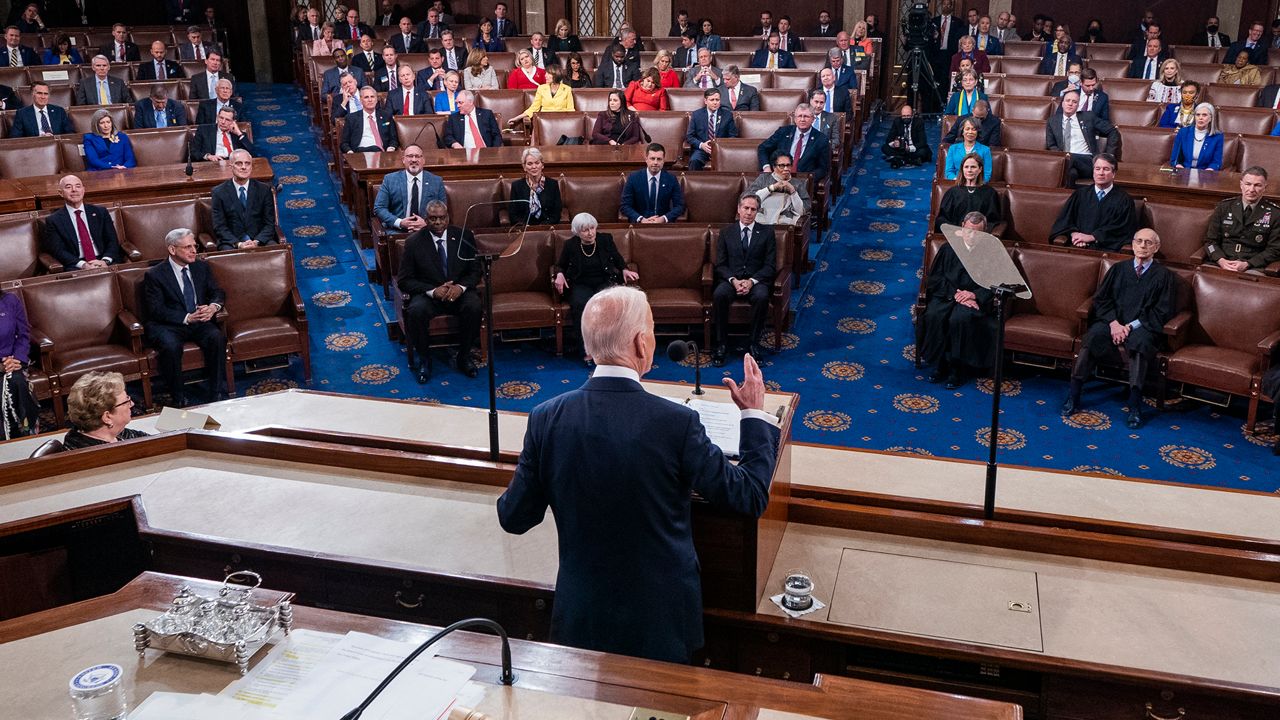OHIO — During Tuesday's State of the Union address, President Joe Biden put a spotlight on Ohio's $20 billion Intel project as an example for improving American manufacturing.
"Some of the most sophisticated manufacturing in the world to make computer chips the size of a fingertip that power the world and our everyday lives," Biden said.
Intel announced in late January that it's building two chip factories on the 1,000-acre site in Licking County, just east of Columbus. The project is expected to create 3,000 company jobs and 7,000 construction jobs, and will support tens of thousands of additional jobs for suppliers and partners.
Construction is expected to begin this year, with production coming online at the end of 2025.
During the speech, Biden also spoke to Intel's CEO Pat Gelsinger, who was in attendance.
"Intel’s CEO, Pat Gelsinger, who is here tonight, told me they are ready to increase their investment from $20 billion to $100 billion," Biden said. "That would be one of the biggest investments in manufacturing in American history."
However, the boost partially depends on legislation awaiting a decision.
The Intel project comes as the U.S. is facing a computer chip shortage, accelerated by the pandemic. The CHIPS for America Act would increase domestic manufacturing of those chips by setting aside $52 billion.
The Senate passed the Innovation and Competition Act (USICA) in June, which included the $52 billion, but the measure is currently stalled in the House of Representatives.
Biden called on Congress during his speech to pass the legislation, saying the money could boost American manufacturing.
"If you travel 20 miles east of Columbus, Ohio, you’ll find 1,000 empty acres of land. It won’t look like much, but if you stop and look closely, you’ll see a 'field of dreams' — the ground on which America’s future will be built," Biden said.
House Democrats announced their version, the COMPETES Act in January, but Republican lawmakers from Ohio and around the country didn't agree with it. The COMPETES Act is the larger bill being considered, allocating billions of dollars toward improving the supply chain, funding research for innovation and setting aside that $52 billion for chip manufacturing.
While Republicans support the funding for chip manufacturing, many have said they don't support the COMPETES Act as a whole.
“The problem with the bill is it’s all talk and no action,” Rep. Steve Chabot, R-Ohio, said in a hearing. “Two thirds of its provisions are findings, senses of Congress, policy statements and other non-binding filler. It mandates over 170 reports. Legislating more bureaucracy and paperwork at the State Department will accomplish little more than bringing a knife to a gun fight in the international arena.”
Sen. Sherrod Brown, D-Ohio, told Spectrum News in February that he believes the opposition is from a political stance.
“The bill has overwhelming Republican support in the Senate, but in the House, they don’t want Biden to succeed,” Brown said. “It’s that simple, and they’re voting against American interests."
In January, Brown and Sen. Rob Portman, R-Ohio, released a joint statement in January urging Congress to pass the legislation.
"The need for this funding is self-evident: over the summer, General Motors, Ford, and other automotive companies announced short-term plant closures in Lima and Toledo, in many cases due to pandemic-related production issues at overseas manufacturers of automotive-grade chips,” they wrote. “In light of the far-reaching consequences for our nation’s economy and national security, there is bipartisan consensus in favor of funding the CHIPS for America Act to catalyze new semiconductor investments in the United States – we should move quickly to ensconce that consensus in law.”
According to the Semiconductor Industry Association, U.S. chip manufacturing plummeted to 12% compared to 37% in 1990. The shortage during the pandemic created a ripple effect, leading to delays in production for cars, phones and various other technological devices.



